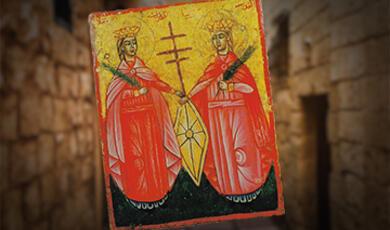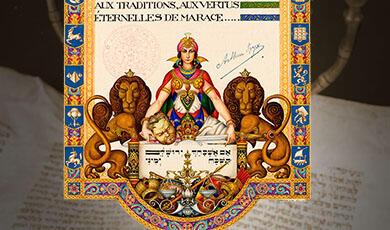Press release: Women Leaders in Early Christianity

Why did the place of women in the church change?
”Christianity was won over by the idea that good girls don’t talk in public”
Embargo: 05 April 2023 2pm
We would like to invite you to a hybrid lecture by the historian and theologian Professor Morwenna Ludlow on Women Leaders in Early Christianity on 05 April 2023.
Professor Ludlow explores the two vivid stories of early Christian saints Macrina and Thecla to ask: what can they tell us about early Christian women leaders?
The place of women within the church has been much debated both historically and today. She will show how “over the past decade or so scholars have drawn together a substantial and exciting body of evidence, pieced carefully together from literary texts, inscriptions and other sources, that shows that women did indeed exercise leadership roles in the church. There were almost certainly women priests. There may have been some women bishops. There were undoubtedly many women deacons who assisted in liturgy, prepared women for baptism and played an important role in the baptismal rite itself.”
She will ask why, if it was that case that women played leading roles in early Christian communities, did this change by the fourth century?
Ludlow’s argument hinges on the gendered nature of space and speech in the ancient world: “space and place were highly significant. Household space was seen as enclosed and indoor space; it was a stationary location; it was associated with that which is natural, female and inferior. Public space, on the other hand – that is the space of the city, of law-making and political negotiations – was seen as open and outdoor space; it was associated with mobility and with that which is civilised, male and superior.”
Turning to the ancient stories of Thecla and Macrina, Ludlow will explore how these two texts show us a development in early Christian attitudes to women’s leadership and traces the restriction of women’s leadership roles as the church became a more public institution. She will focus on thinking about their voices and importantly not just what they say, but where they speak. Asking why this matters, she will say that “as others have argued, we are still influenced by the ancient world – influenced in ways which include social attitudes about proper and improper speech.”
The first story comes from the Acts of Paul and Thecla, an anonymous text which was probably composed in the second century CE, in which Thecla followed Saint Paul and, after a few adventures, pursued her own career as a Christian preacher and teacher. The second story is taken from the biography of Macrina, written by her brother Gregory of Nyssa, who by the end of her life was the leader of a monastery of both women and men.
Ludlow concludes: “this is why I have argued that it is crucial, when reading texts about early Christian women, to pay attention not just to what they say, but where they are permitted to speak. Only by mapping out their speech in this way can we understand the scope of and the restrictions placed on early Christian women’s leadership. But it’s not just a question of getting the history right. Mapping out where speech is deemed appropriate still matters, because it exposes ideas about good speech which we have unwittingly inherited from classical antiquity and the early Christian church.”
ENDS
Notes to Editors
You can sign up to watch the hybrid lecture online or in person; or email us for an embargoed transcript or speak to Professor Morwenna Ludlow: l.graves@gresham.ac.uk / 07799 738 439
Read more about Professor Morwenna Ludlow
Sign up to our monthly newsletter here to get advance notice of our events.


 Login
Login


